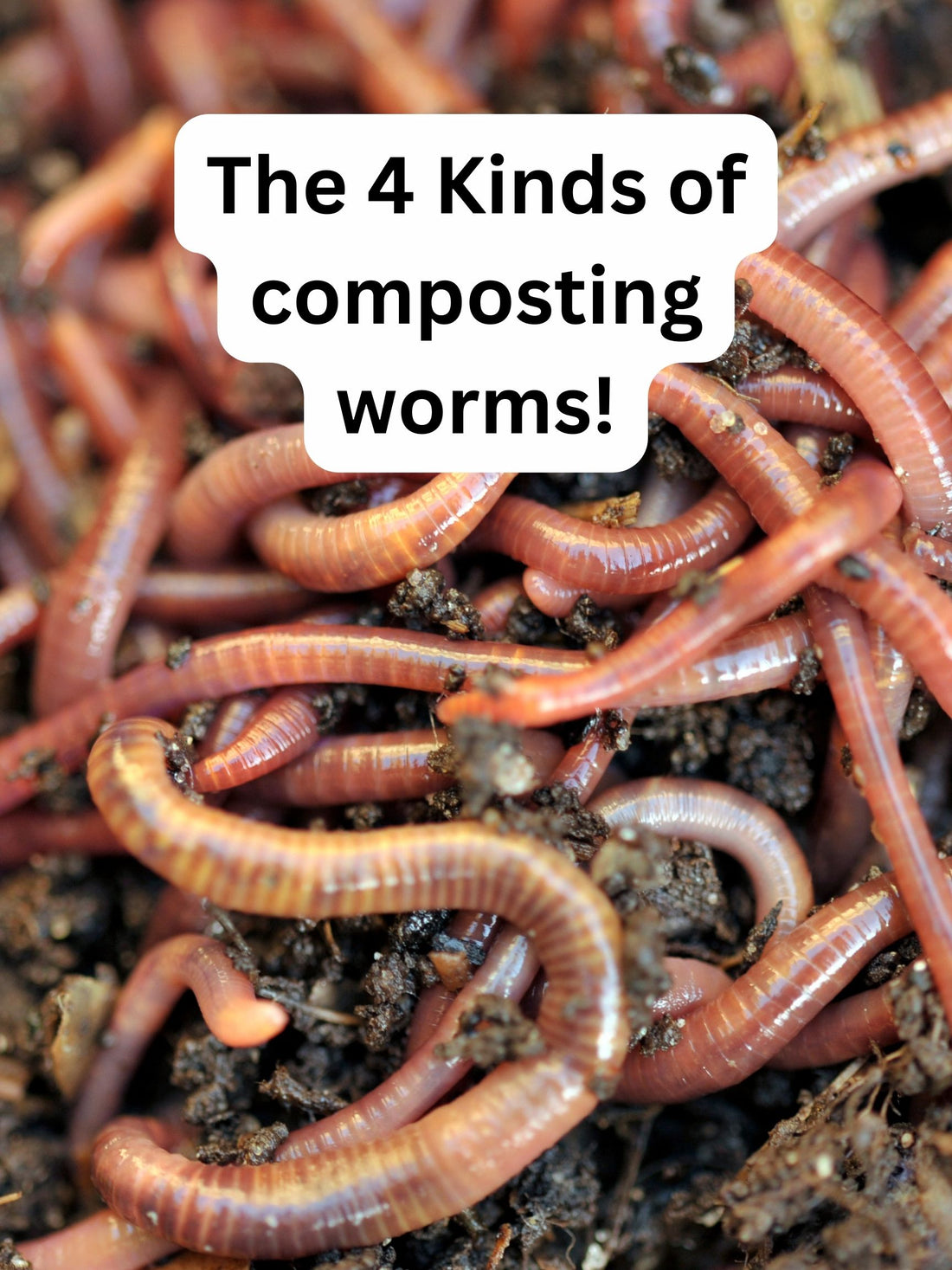
The 4 different types of Composting Worms
Share

Composting worms are a vital component of vermicomposting, which is the process of using worms to convert organic waste into nutrient-rich compost. There are several types of worms that are commonly used for composting, each with their unique characteristics and benefits. In this blog post, we will explore the different types of composting worms and their roles in the composting process.
1. Red Wigglers
Red wigglers, also known as Eisenia fetida, are the most commonly used composting worms. They are small, red-colored worms that can consume a significant amount of organic waste. Red wigglers reproduce quickly and can produce large quantities of castings, which are the nutrient-rich waste produced by the worms.
2. European Nightcrawlers
European nightcrawlers, also known as Eisenia hortensis, are larger than red wigglers and can tolerate cooler temperatures. They are also more active than red wigglers, which can help to aerate the compost pile. European nightcrawlers are excellent for composting large amounts of organic waste and can produce high-quality castings.
3. African Nightcrawlers
African nightcrawlers, also known as Eudrilus eugeniae, are the largest and most active of the composting worms. They are known for their ability to consume large amounts of organic waste and can produce high-quality castings. African nightcrawlers require higher temperatures than other composting worms and are best suited for warmer climates.
4. Canadian Nightcrawlers
Canadian nightcrawlers, also known as Lumbricus terrestris, are not typically used for vermicomposting due to their large size and slow reproduction rate. However, they can be used in outdoor composting systems to help break down larger organic materials, such as leaves and branches.
In conclusion, composting worms play a crucial role in the vermicomposting process, helping to convert organic waste into nutrient-rich compost. Each type of worm has its unique characteristics and benefits, and choosing the right type of worm for your vermicomposting system can help maximize the efficiency and quality of your compost. Whether you are a beginner or an experienced vermicomposter, incorporating composting worms into your composting system can help you create high-quality compost for your garden or plants
1. Red Wigglers
Red wigglers, also known as Eisenia fetida, are the most commonly used composting worms. They are small, red-colored worms that can consume a significant amount of organic waste. Red wigglers reproduce quickly and can produce large quantities of castings, which are the nutrient-rich waste produced by the worms.
2. European Nightcrawlers
European nightcrawlers, also known as Eisenia hortensis, are larger than red wigglers and can tolerate cooler temperatures. They are also more active than red wigglers, which can help to aerate the compost pile. European nightcrawlers are excellent for composting large amounts of organic waste and can produce high-quality castings.
3. African Nightcrawlers
African nightcrawlers, also known as Eudrilus eugeniae, are the largest and most active of the composting worms. They are known for their ability to consume large amounts of organic waste and can produce high-quality castings. African nightcrawlers require higher temperatures than other composting worms and are best suited for warmer climates.
4. Canadian Nightcrawlers
Canadian nightcrawlers, also known as Lumbricus terrestris, are not typically used for vermicomposting due to their large size and slow reproduction rate. However, they can be used in outdoor composting systems to help break down larger organic materials, such as leaves and branches.
In conclusion, composting worms play a crucial role in the vermicomposting process, helping to convert organic waste into nutrient-rich compost. Each type of worm has its unique characteristics and benefits, and choosing the right type of worm for your vermicomposting system can help maximize the efficiency and quality of your compost. Whether you are a beginner or an experienced vermicomposter, incorporating composting worms into your composting system can help you create high-quality compost for your garden or plants